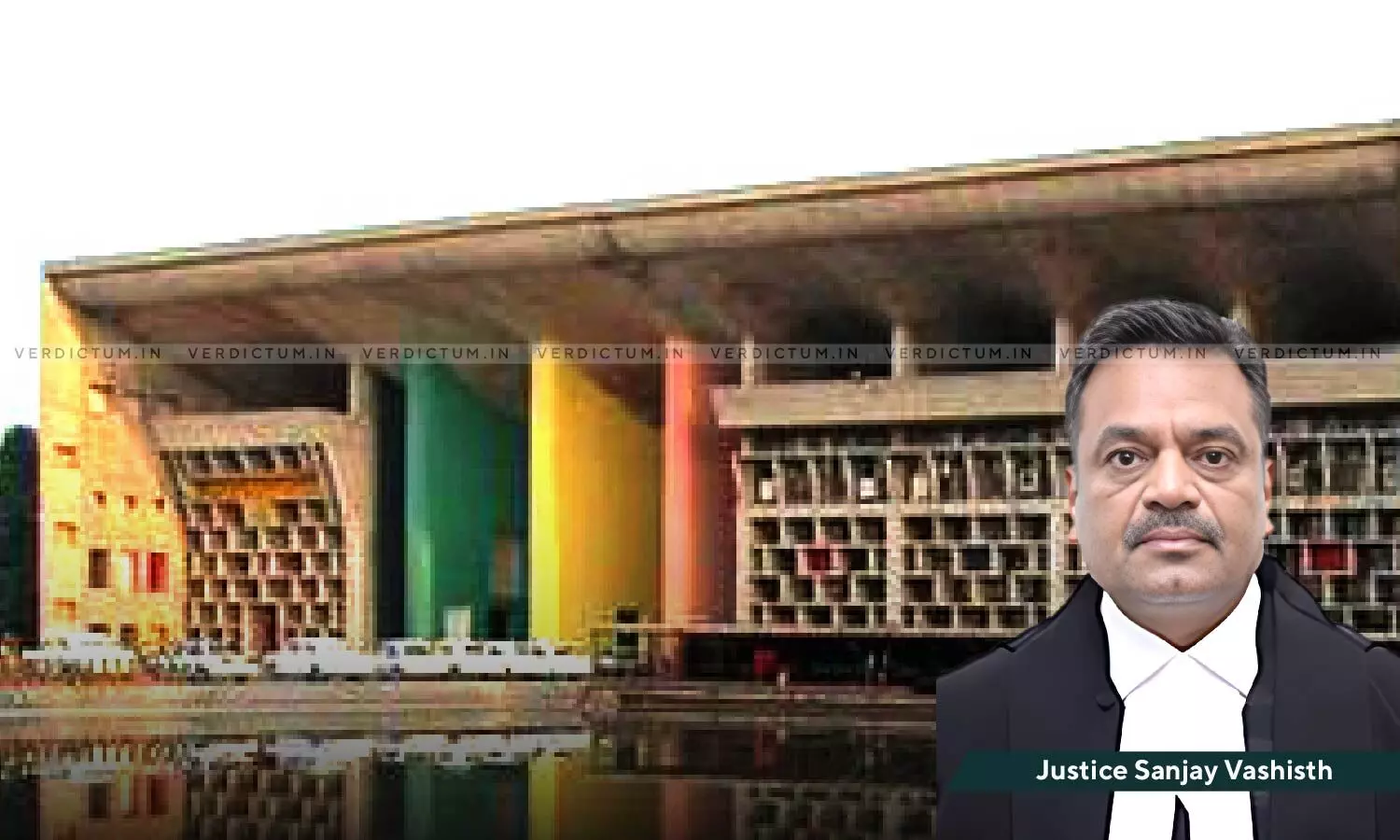
Justice Sanjay Vashisth, Punjab and Haryana High Court
Not Obligatory To Record Witnesses’ Statements Or Call Aggrieved Party For Taking Cognizance U/S.210(1)(c) Of BNSS: Punjab & Haryana High Court
 |
|The Police Officials had approached the Punjab and Haryana High Court challenging a summoning order issued in a case involving allegations of custodial death.
While dismissing the Petition of Police Officials challenging a summoning order issued in a case involving allegations of custodial death, the Punjab and Haryana High Court has observed that for taking cognizance u/s 210(1)(c) of BNSS, 2023 and to issue process, it is not obligatory for the Court to record statements of the witnesses or even to call for the aggrieved party.
The Petitioners (Police Officials) had approached the High Court challenging the order passed by the Judicial Magistrate First Class Magistrate whereby while taking cognizance under section 210(1)(c) of BNSS, 2023, all of them were summoned under Sections 103, 238, 340 r/w 190 of Bharatiya Nyaya Sanhita, 2023 (BNS, 2023) (corresponding Sections 302, 201, 470,471 read with section 149 IPC).
The Single Bench of Justice Sanjay Vashisth said, “Therefore, in the opinion of this Court for taking cognizance u/s 210(1)(c) of BNSS, 2023 and to issue process, it is not obligatory over the Court to record statements of the witnesses or even to call for the aggrieved party. Bare reading of the provision is entirely based upon the satisfaction of the Magistrate, who comes to know of happening of some offence, on his own or even upon information from any person, other than the police officer. Not only this, Magistrate can take cognizance entirely on the basis of his own knowledge also for committing an offence, and thereupon, no specific procedure is required to be adopted or followed before issuance of process vis-à-vis the suspect. However, even in a warrant case, if thinks fit, Magistrate can direct the accused to be brought before it simply by issuing summon for appearance by virtue of Section 227(1)(b) of BNSS, 2023.”
Advocate P.S. Ahluwalia represented the Petitioners, while DAG Amandeep Singh represented the Respondent.
Factual Background
The Inspector was informed that Baljinder Singh @ Billa, an accused wanted in a criminal case, had come to the house of the co-accused, but he wasn’t found there when the raid was conducted. However, Inspector Navpreet Singh along with the police party, tracing the said person reached the thermal plant lakes, where they saw one young man sitting on the motorcycle, and the other standing near him, talking to each other. The person who was standing was Bhinder Singh @ Kaka Nihang, who allegedly jumped into the lake.
Bhinder Singh was rescued but was later declared dead. The brother of the deceased made a written complaint during the jail inspection, alleging that his brother Bhinder Singh, was illegally detained, interrogated, and tortured to death by the police without any fault. The District & Sessions Judge, Bathinda, gave way to initiate an inquiry. The report concluded that Bhinder Singh was in the illegal custody of CIA-1 when he died under suspicious circumstances. Summons were thereby issued to the accused persons.
Reasoning
The Bench explained that the Magistrate’s power to take cognizance under section 210(1)(c) is exclusive, independent and of holistic value. To remove any doubt or apprehension of biases of the summoned accused, legislation has inserted Section 211, making it obligatory for the Magistrate to apprise the summoned accused of his right to file an objection and then to proceed as per the consequential directions issued by the Chief Judicial Magistrate in that behalf. “...from the bare reading of the provisions, it is clear that power to take cognizance u/s 210(1)(c) is exclusive and independent, however, on summoning of the accused, it would be subject to the mandatory compliance of Section 211 of BNSS, 2023”, it said.
As per the Bench, the apprehension of the petitioners that there was no statement or document to be supplied to them appeared to be unfounded because the detailed impugned order suggested that there was enough material before the Magistrate while taking cognizance on the judicial side and it was entirely on the basis of Magistrate’s satisfaction that process has been issued for commencement of the proceedings.
The Bench was of the view that the plea of the petitioners that without recording any fresh evidence on oath, etc., a Magistrate is barred from taking cognizance under 210(1)(c), who himself conducted inquiry u/s 196 of BNSS, 2023, was misconceived and misplaced. Coming to the issue regarding the issuance of the process of causing appearance through summons or warrant, the Bench noted that the petitioner had approached the Court prematurely without having any alleged grievance for violation mentioned under Section 231(iii) of BNSS, 2023.
“Once it is observed that judicial inquiry carries wider scope than the inquiry conduced u/s 194 of BNSS, 2023, allegation of the petitioners that the Magistrate, who conducted judicial inquiry could not himself exercise the power of taking cognizance u/s 210(1)(c) of BNSS, 2023, is also found to be baseless. Moreover, summoned accused would be free to express his apprehension of any bias in the objection application, if any, is thought to be filed u/s 211 of BNSS, 2023”, it said.
Thus, finding no irregularity in the order passed by the Magistrate, the Bench dismissed the petition.
Cause Title: Navpreet Singh and Others v. State of Punjab (Neutral Citation: 2025:PHHC:077563)
Appearance
Petitioner: Advocates P.S. Ahluwalia, Bhavi Kapur, Prince Goyal
Respondent: DAG Amandeep Singh